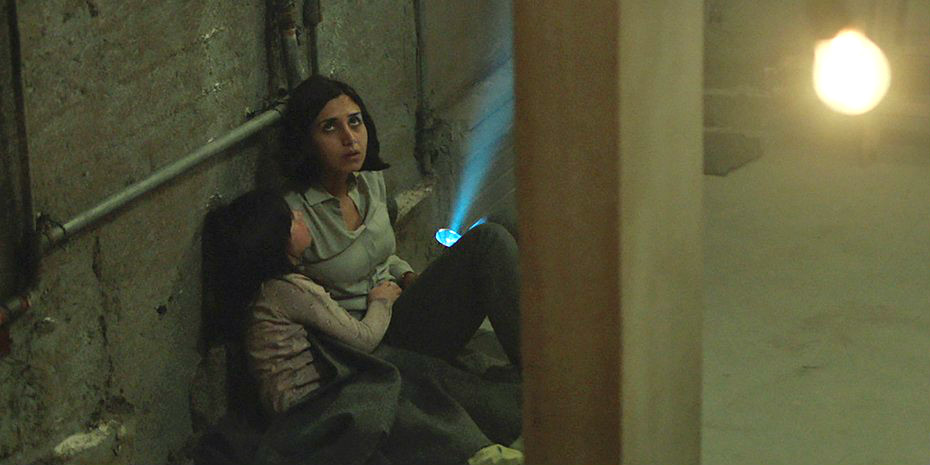
- Golden Globe Awards
Under The Shadow (United Kingdom/Iran)
It’s the mid-eighties and the war between Iran and Iraq rages on with bombs and now missiles targeting Tehran. Residents of an apartment complex in the Iranian capital try to conduct ordinary lives, even though intermittent anti aircraft sirens and the ensuing scramble for the shelter of the basement belie the normalcy. When her doctor husband Iraj (Bobby Naderi) is posted closer to the front, Shideh (Narges Rashidi) is left alone with her young and impressionable daughter Dorsa (Avin Manshadi ) in their her third floor apartment. Soon the building suffers a direct hit as a missile breaks through the ceiling while fortunately failing to detonate. The event however appears to bring the inhabitants to a breaking point. As many of the neighbors decide to leave for the relative safety of the country side, Dorsa seems more an more unnerved especially after the landlords wife, Mrs. Ebrahimi and her orphan nephew tell her stories of malevolent Djinn (demons in the Islamic tradition). Dorsa becomes convinced of a malevolent presence and the seemingly mysterious disappearance of a favorite doll causes her to become ill with a mysterious fever. Shideh, also an ex-medical student who has had to forgo her career on account of her political activism frowned upon by the ne revolutionary Islamic regime, rebuffs Mrs. Ebrahimi’s insistent warnings of a Djinn possession of her daughter but a mounting sequence of inexplicable apparitions finally envelop her in an unsettling sense of dread which soon permeates their existence in the empty apartment building.Babak Anvari’s debut feature debuted at Sundance last winter and was promptly acquired by Netflix. The film, in Farsi, is a product of the Iranian diaspora: Ms. Rashidi lives and works in Germany; Anvari is an Iranian-born expatriate and Under The Shadow was selected as British entry to the Foreign Language Oscar. Shadow hews to the conventions of stylish horror in the mold of Polanski although the genre in this case is a metaphorical veneer on psychological themes of motherhood and those of social repression (of Shideh as a professional woman thwarted by an obtuse masculine (and religious) power structure. All on the backdrop of a conflict of rare futility which was a senseless prelude to the ensuing bloodshed and chaos which still haunts the region.